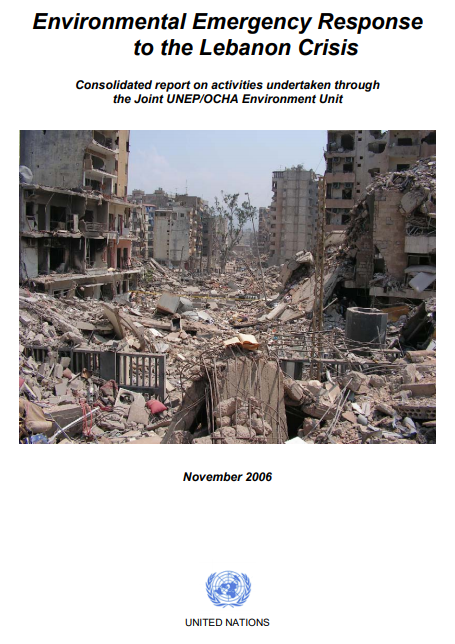This mission report describes the UN Environment/OCHA Joint Unit’s mission in Lebanon following hostilities between Hezbollah and Israel, which led to a major oil spill at the Jiyeh power plant.
report describes the UN Environment/OCHA Joint Unit’s mission in Lebanon following hostilities between Hezbollah and Israel, which led to a major oil spill at the Jiyeh power plant.
Open hostilities between Israel and Hezbollah led to heavy aerial bombardment of Lebanon, particularly in the south of the country and in south Beirut. The conflict resulted in loss of life, injuries and considerable damage to Lebanese industrial installations and infrastructure. From the beginning of the crisis, the JEU monitored and identified potential acute risks, such as chemical spills occurring as a result of damage to industrial infrastructure. Numerous players were involved in the environmental response efforts at the international level, giving rise to a need for effective coordination. The JEU played a key role in coordination and sharing knowledge, issuing environmental updates as the crisis developed and providing input into the OCHA Humanitarian Situation Reports. The JEU also organized and chaired regular stakeholder conference calls that provided a forum for information sharing, ensured maximum efficiency and minimized overlap.
In Lebanon, the JEU set up an Oil Spill Operations and Coordination Centre within the Ministry of Environment. During the aerial blockade of Lebanon, UN Environment۪s Executive Director played a key role in getting Israeli agreement for aerial surveillance flights along an environmental corridor۪. This allowed the response team to assess the extent of the spill.
Consult the report here.